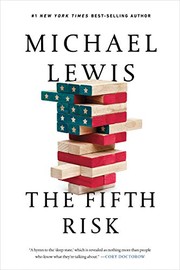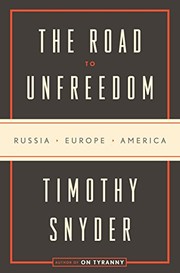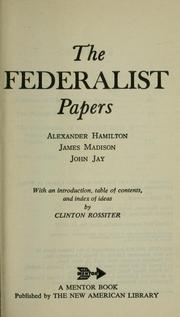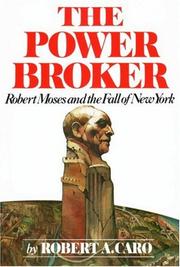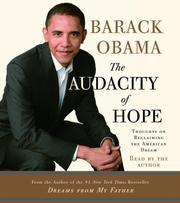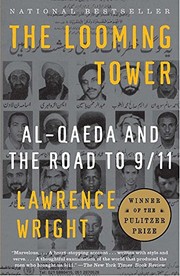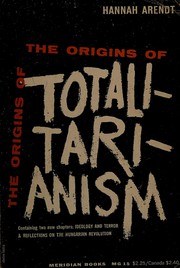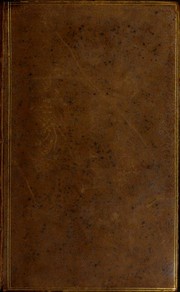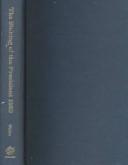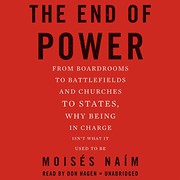Are you fascinated by the inner workings of politics and governance? Whether you’re a political science student, a history buff, or just a curious citizen, delving into a good book on the government can be both enlightening and entertaining. From in-depth analyses of political systems to thrilling fictional portrayals of political intrigue, the government books on this list cover a wide range of topics and genres. Get ready to expand your understanding of the political world with these 20 best books about the government.
Contents
- 1 20 Best Books About The Government
- 2 The Fifth Risk
- 3 The Road to Unfreedom: Russia, Europe, America
- 4 The Federalist Papers
- 5 The New Jim Crow: Mass Incarceration in the Age of Colorblindness
- 6 The Power Broker: Robert Moses and the Fall of New York
- 7 The Audacity of Hope: Thoughts on Reclaiming the American Dream
- 8 The Gulag Archipelago
- 9 The Looming Tower: Al-Qaeda and the Road to 9/11
- 10 The Shock Doctrine: The Rise of Disaster Capitalism
- 11 The Origins of Totalitarianism
- 12 The Prince
- 13 The Pentagon Papers
- 14 The Age of Surveillance Capitalism: The Fight for a Human Future at the New Frontier of Power
- 15 The Constitution of Liberty
- 16 The Making of the President 1960
- 17 The Art of War
- 18 The End of Power: From Boardrooms to Battlefields and Churches to States, Why Being In Charge Isn’t What It Used to Be
- 19 The Communist Manifesto
- 20 The Righteous Mind: Why Good People Are Divided by Politics and Religion
- 21 The Death and Life of Great American Cities
- 22 Conclusion
- 23
- 24 Books about Frontier Life: 2024 Updated Guide to Essential Reading
- 25 20 Witches And Magic Best Books to Read – The 2024 Edition
- 26 Books on Fashion: 2024 Update of the Best Titles
20 Best Books About The Government
The Fifth Risk
by Michael Lewis
The Fifth Risk by Michael Lewis is a captivating book about the government that delves into the inner workings of various government agencies and the potential consequences of their mismanagement. Lewis sheds light on the crucial roles these agencies play in ensuring the safety and well-being of the nation, from managing nuclear weapons to predicting natural disasters. Through in-depth research and compelling storytelling, he highlights the risks posed by the lack of attention and understanding of these critical functions. This book on the government serves as a wake-up call, urging readers to recognize the importance of these often overlooked agencies and the potential impact of their neglect. With his signature blend of investigative journalism and narrative flair, Lewis offers a thought-provoking exploration of the government and the risks associated with its mismanagement.
The Road to Unfreedom: Russia, Europe, America
by Timothy Snyder
The Road to Unfreedom by Timothy Snyder is a thought-provoking book on the government’s rise of authoritarianism in Russia, Europe, and America. Snyder explores the tactics and ideologies employed by leaders to undermine democracy and consolidate power. Through a combination of historical analysis and contemporary political insight, Snyder uncovers the connections between the three regions and how the erosion of freedom in one area can have far-reaching consequences. The book delves into the manipulation of information, the use of propaganda, and the exploitation of fear to control and manipulate societies. With meticulous research and compelling storytelling, Snyder offers a sobering look at the state of democracy and the challenges it faces in the modern world. The Road to Unfreedom is a must-read for anyone interested in understanding the current political climate and the threats posed to democratic institutions.
The Federalist Papers
by Alexander Hamilton, James Madison, and John Jay
The Federalist Papers, written by Alexander Hamilton, James Madison, and John Jay, is a seminal book about the government. It is a collection of 85 essays that were written to promote the ratification of the United States Constitution. These essays provide a deep and insightful exploration of the principles and structures of the American government, offering a powerful defense of the Constitution and its system of checks and balances. The authors delve into the key issues of the time, such as the division of powers between the federal and state governments, the role of the judiciary, and the importance of a strong executive branch. Their compelling arguments and keen analysis make this the government book a must-read for anyone interested in American political thought and the foundations of the U.S. government.
The New Jim Crow: Mass Incarceration in the Age of Colorblindness
by Michelle Alexander
The New Jim Crow: Mass Incarceration in the Age of Colorblindness by Michelle Alexander is a groundbreaking book about the government’s role in perpetuating racial inequality through the criminal justice system. Alexander argues that the War on Drugs and mass incarceration have effectively created a new system of racial control, akin to the Jim Crow laws of the past. She exposes how the government’s policies have disproportionately targeted and harmed Black and brown communities, leading to a cycle of poverty, discrimination, and disenfranchisement. Through meticulous research and compelling storytelling, Alexander sheds light on the deep-rooted injustices within the criminal justice system and calls for a radical shift in public policy. This eye-opening book challenges readers to confront the harsh realities of systemic racism and to advocate for meaningful change.
The Power Broker: Robert Moses and the Fall of New York
by Robert A. Caro
The Power Broker: Robert Moses and the Fall of New York by Robert A. Caro is a monumental biography that delves into the life and influence of Robert Moses, a figure who shaped the landscape of New York City and state for decades. This book offers a captivating exploration of the intricate power dynamics within the political realm, uncovering the ways in which one man’s vision and ambition transformed the city’s infrastructure and urban development. Caro’s meticulous research and compelling narrative shed light on the complex intersection of politics, urban planning, and the public good, making it a must-read for anyone interested in understanding the inner workings of governance and the impact of influential individuals on the fabric of society. The Power Broker is not just a book about the government; it’s a compelling saga of power, ambition, and the consequences of unchecked authority.
The Audacity of Hope: Thoughts on Reclaiming the American Dream
by Barack Obama
The Audacity of Hope by Barack Obama is a compelling book on the government that offers a thoughtful and inspiring look at reclaiming the American Dream. In this insightful work, Obama shares his vision for the future of America and discusses the challenges facing the country. Through personal anecdotes and political analysis, he offers a message of hope and unity, emphasizing the importance of coming together to address the nation’s most pressing issues. With his eloquent prose and keen insights, Obama provides a refreshing perspective on the government, urging readers to engage in the political process and work towards a better future for all Americans. The Audacity of Hope is a must-read for anyone seeking a deeper understanding of the government and its potential to bring about positive change.
The Gulag Archipelago
by Aleksandr Solzhenitsyn
The Gulag Archipelago, penned by Aleksandr Solzhenitsyn, is a harrowing and eye-opening book about the government’s oppressive regime in the Soviet Union. This literary masterpiece offers a chilling account of the Soviet government’s brutal system of labor camps, where countless individuals were unjustly imprisoned, tortured, and even executed. Solzhenitsyn’s firsthand experiences as a former prisoner in these labor camps provide a raw and powerful narrative that sheds light on the dark and inhumane practices of the government. Through detailed and poignant storytelling, the author unveils the inner workings of the government’s totalitarian control and the devastating impact it had on the lives of its citizens. The Gulag Archipelago serves as a stark reminder of the dangers of unchecked governmental power and the resilience of the human spirit in the face of oppression.
The Looming Tower: Al-Qaeda and the Road to 9/11
by Lawrence Wright
The Looming Tower: Al-Qaeda and the Road to 9/11 by Lawrence Wright is a gripping non-fiction book on the government’s failure to prevent the 9/11 terrorist attacks. Wright meticulously traces the rise of Al-Qaeda and its leader, Osama bin Laden, while also delving into the internal power struggles within the FBI and CIA. By providing a comprehensive account of the events leading up to the tragedy, the book offers an in-depth analysis of the government’s counterterrorism efforts and the intelligence failures that allowed the attacks to occur. With a compelling narrative, the book about the government sheds light on the complex web of political and ideological factors that contributed to the deadliest terrorist attack on American soil. It is a must-read for anyone interested in understanding the intricacies of counterterrorism and the challenges faced by the government in combating global threats.
The Shock Doctrine: The Rise of Disaster Capitalism
by Naomi Klein
The Shock Doctrine: The Rise of Disaster Capitalism by Naomi Klein is a captivating book about the government and its relationship with capitalism. Klein explores the concept of “disaster capitalism,” where governments and corporations take advantage of national crises to push through controversial policies and economic reforms. She delves into the use of shock, whether caused by natural disasters or political upheaval, to implement free-market policies that benefit the wealthy and powerful at the expense of the majority. Through a series of historical and contemporary case studies, Klein exposes the tactics used by the government to exploit moments of crisis for their own gain. The Shock Doctrine is a thought-provoking and eye-opening examination of the government’s role in shaping economic and social policies during tumultuous times.
The Origins of Totalitarianism
by Hannah Arendt
The Origins of Totalitarianism by Hannah Arendt is a thought-provoking book that delves deep into the history and rise of totalitarianism. Arendt examines the roots of this political system, touching on the impact of imperialism, anti-Semitism, and the failure of the nation-state. She also explores the role of propaganda, the erosion of individual freedoms, and the manipulation of truth in totalitarian regimes. This book on the government is a powerful and insightful analysis of the nature of power and the dangers of unchecked authority. Arendt’s exploration of the government’s reach and influence is a compelling read for anyone interested in understanding the complexities of political systems and the dynamics of power.
The Prince
by Niccolò Machiavelli
The Prince by Niccolò Machiavelli is a classic book on political strategy and leadership. This influential work provides a glimpse into the complexities of governing and offers timeless advice on how to acquire and maintain political power. Machiavelli’s pragmatic approach to politics and his emphasis on the importance of effective leadership have made The Prince a must-read for anyone interested in the art of governance. This book about the government is a thought-provoking and insightful read that continues to be relevant today, offering valuable lessons for leaders and policymakers. Machiavelli’s astute analysis and shrewd recommendations make The Prince an essential resource for understanding the dynamics of power and leadership.
The Pentagon Papers
by Neil Sheehan, Hedrick Smith, E.W. Kenworthy, and Fox Butterfield
The Pentagon Papers, authored by Neil Sheehan, Hedrick Smith, E.W. Kenworthy, and Fox Butterfield, is a groundbreaking book on the government that delves into the controversial Vietnam War. This gripping and meticulously researched account reveals the government’s covert decision-making process, including the deception and manipulation of information that led to a prolonged and costly conflict. The book uncovers the government’s hidden agendas and sheds light on the internal power struggles and political maneuvering that shaped the course of the war. With its in-depth analysis and compelling narrative, The Pentagon Papers provides an eye-opening look into the inner workings of the government and its impact on one of the most tumultuous periods in American history.
The Age of Surveillance Capitalism: The Fight for a Human Future at the New Frontier of Power
by Shoshana Zuboff
The Age of Surveillance Capitalism: The Fight for a Human Future at the New Frontier of Power by Shoshana Zuboff is a groundbreaking book that explores the emergence of surveillance capitalism and its implications for society. Zuboff delves into the ways in which technology companies have capitalized on the collection of personal data, resulting in unprecedented levels of surveillance and control. She argues that this new form of capitalism poses a threat to individual autonomy and democratic society, and calls for a reevaluation of the relationship between technology and the government. This thought-provoking book on the government challenges readers to consider the ethical and political implications of the data economy, and offers a compelling vision for reclaiming human agency in the face of pervasive surveillance.
The Constitution of Liberty
by Friedrich Hayek
The Constitution of Liberty by Friedrich Hayek is a seminal book on the government and individual freedom. In this classic work, Hayek passionately defends the principles of a free society and argues that a government’s role should be limited to protecting individual rights and maintaining the rule of law. Hayek delves into the dangers of government intervention and the importance of individual responsibility and economic freedom. He also explores the relationship between liberty and the rule of law, emphasizing the need for a legal framework that safeguards individual rights and promotes a competitive economy. With its lucid prose and rigorous analysis, The Constitution of Liberty remains an essential read for anyone interested in the principles of a free society and the proper role of the government in safeguarding individual liberties.
The Making of the President 1960
by Theodore H. White
The Making of the President 1960 by Theodore H. White is a captivating book about the government that provides a detailed account of the 1960 presidential election. White’s narrative style and in-depth analysis offer readers a fascinating insight into the political strategies, personalities, and pivotal moments that shaped the election between John F. Kennedy and Richard Nixon. This Pulitzer Prize-winning book paints a vivid picture of the American political landscape during a pivotal moment in history, providing a rich exploration of the intricacies of the electoral process and the inner workings of the political machine. With its immersive storytelling and meticulous attention to detail, The Making of the President 1960 is a must-read for anyone interested in understanding the dynamics of American politics and the complexities of the government.
The Art of War
by Sun Tzu
The Art of War by Sun Tzu is a timeless classic that offers invaluable insights into the strategies and tactics of warfare. This ancient Chinese text is not just a military manual; it is a profound book about the government and leadership. Sun Tzu’s teachings on deception, maneuvering, and the importance of knowing oneself and the enemy have been applied to fields beyond the battlefield, including business, politics, and management. The government book delves into the psychology of conflict, emphasizing the importance of thorough planning, adaptability, and seizing opportunities. As a book on the government, it provides valuable lessons for those in positions of power, offering timeless wisdom on how to navigate and succeed in the complex arena of politics and governance.
The End of Power: From Boardrooms to Battlefields and Churches to States, Why Being In Charge Isn’t What It Used to Be
by Moisés Naím
The End of Power by Moisés Naím is a thought-provoking book that explores the shifting dynamics of influence and control in today’s world. Naím argues that traditional power structures, whether in boardrooms, battlefields, churches, or states, are no longer as dominant as they once were. Through a series of captivating examples and compelling analysis, the author delves into the reasons behind this decline in power and the rise of new forces that challenge the status quo. This book on the government reveals how technology, globalization, and other factors have eroded the once unassailable authority of governments and other institutions. Naím’s insightful exploration of these changes offers a fresh perspective on the nature of power and its implications for the future. Whether you’re interested in politics, business, or social dynamics, The End of Power is a must-read for anyone seeking to understand the evolving nature of influence in our modern world.
The Communist Manifesto
by Karl Marx and Friedrich Engels
The Communist Manifesto, written by Karl Marx and Friedrich Engels, is a groundbreaking book on the government that argues for the overthrow of capitalist systems. Published in 1848, this influential text outlines the authors’ theories on class struggle, historical materialism, and the inevitable downfall of capitalism. Marx and Engels assert that the bourgeoisie, or wealthy capitalist class, exploits the proletariat, leading to economic inequality and social unrest. They propose a revolutionary overthrow of the capitalist system, advocating for a classless society where the means of production are collectively owned. The book about the government has had a profound impact on political and social movements worldwide, inspiring revolutions and shaping the course of history. Its enduring relevance and powerful message continue to spark debate and inspire change.
The Righteous Mind: Why Good People Are Divided by Politics and Religion
by Jonathan Haidt
The Righteous Mind by Jonathan Haidt is a fascinating exploration of the psychological and moral foundations that underpin our political and religious beliefs. Haidt delves into the complexities of human morality, arguing that our moral reasoning is influenced by a combination of intuition, emotion, and logic. Through compelling research and real-world examples, he reveals why good people often find themselves on opposite sides of the political and religious spectrum. This thought-provoking book on the government sheds light on the deep-rooted differences in moral values that divide us, offering valuable insights for anyone seeking to understand the complexities of human nature and the role it plays in shaping our beliefs and society.
The Death and Life of Great American Cities
by Jane Jacobs
The Death and Life of Great American Cities by Jane Jacobs is a groundbreaking book on urban planning and the role of communities in city development. Jacobs challenges the traditional urban planning theories and provides a fresh perspective on how cities should be designed and organized. She emphasizes the importance of diverse, mixed-use neighborhoods and the vitality of street life for the well-being of a city. Jacobs criticizes the top-down approach of city planning and advocates for a more bottom-up, community-oriented approach. Her book about the government has sparked a revolution in urban planning and has influenced generations of city planners and architects. With its insightful analysis and compelling arguments, The Death and Life of Great American Cities is a must-read for anyone interested in the dynamics of urban life and the role of communities in shaping the urban landscape.
Conclusion
Exploring the 20 best books about The Government is an eye-opening journey into the intricacies of politics, power, and policy-making. From historical accounts to contemporary analysis, these books provide valuable insights into the inner workings of the government and its impact on society. Whether you’re a political enthusiast, a student of governance, or simply curious about the forces shaping our world, these books offer a compelling and comprehensive exploration of the role of government in our lives.
Which The Government book is best?
The best book on The Government can vary with personal preference, but three widely recommended titles are:
- The Fifth Risk by Michael Lewis,
- The Road to Unfreedom: Russia, Europe, America by Timothy Snyder,
- The Federalist Papers by Alexander Hamilton, James Madison, and John Jay.
Each offers valuable insights and could be a great starting point.
What are the best books to learn about The Government?
For those looking to learn about The Government, there is a wealth of literature that can provide a comprehensive understanding of the subject. Some of the most highly recommended books include:
- The Fifth Risk by Michael Lewis,
- The Road to Unfreedom: Russia, Europe, America by Timothy Snyder,
- The Federalist Papers by Alexander Hamilton, James Madison, and John Jay,
- The New Jim Crow: Mass Incarceration in the Age of Colorblindness by Michelle Alexander,
- The Power Broker: Robert Moses and the Fall of New York by Robert A. Caro,
- The Audacity of Hope: Thoughts on Reclaiming the American Dream by Barack Obama,
- The Gulag Archipelago by Aleksandr Solzhenitsyn,
- The Looming Tower: Al-Qaeda and the Road to 9/11 by Lawrence Wright,
- The Shock Doctrine: The Rise of Disaster Capitalism by Naomi Klein,
- The Origins of Totalitarianism by Hannah Arendt
These books offer a range of perspectives on The Government, covering various aspects and approaches to the subject.
What are the best books on The Government?
The best books on The Government include:
- The Fifth Risk by Michael Lewis,
- The Road to Unfreedom: Russia, Europe, America by Timothy Snyder,
- The Prince by Niccolò Machiavelli,
- The Pentagon Papers by Neil Sheehan, Hedrick Smith, E.W. Kenworthy, and Fox Butterfield,
- The Looming Tower: Al-Qaeda and the Road to 9/11 by Lawrence Wright,
- The Audacity of Hope: Thoughts on Reclaiming the American Dream by Barack Obama.
Each offers unique insights into the subject. While these books on the topic of The Government are highly regarded, it’s important to note that any list of ‘best’ books is subjective and reflects a range of opinions.
What are the best The Government books of all time?
Choosing the best The Government books of all time can vary depending on who you ask, but seven titles that are often celebrated include
- The Fifth Risk by Michael Lewis,
- The Road to Unfreedom: Russia, Europe, America by Timothy Snyder,
- The Power Broker: Robert Moses and the Fall of New York by Robert A. Caro,
- The Looming Tower: Al-Qaeda and the Road to 9/11 by Lawrence Wright,
- The Origins of Totalitarianism by Hannah Arendt,
- The Pentagon Papers by Neil Sheehan, Hedrick Smith, E.W. Kenworthy, and Fox Butterfield,
- and The Prince by Niccolò Machiavelli.
Each of these books has made a significant impact in the field of The Government and continues to be influential today.

